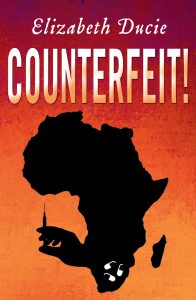In days of old, a gauntlet-wearing knight would challenge a fellow knight or enemy to a duel by throwing one of his armoured gloves onto the ground. The opponent would pick up the gauntlet to accept the challenge. This month I’m throwing down a gauntlet.
Are you up for a challenge?
I am.
One of the courses I took at this year’s Swanwick Writers’ Summer School was…
Writing Original Poetry
I greatly inspired by our teacher Alison Chisholm, a successful poet, and a regular contributor and competition judge for Writing Magazine. In the bookshop at Swanwick there was a selection of her books, which I spent some time browsing. I already own one of Alison’s collections, and this year I bought a narrow volume called ‘The Poet’s Workbook’, a guide which gives me ten projects for creating new poems of my own.
Here I am at the start. Project One, a tercet.
A what? Can’t we start with something easy?
A tercet consists, apparently, of three line stanzas – tercets – ‘built up to recreate a memory with plenty of imagery to animate the situation.’ This may be free verse, or any number of rhyming patterns.
 No, I will not let myself shut the book and put it back on the shelf. Neither will I listen to that inner critic telling me I’ll never do it.
No, I will not let myself shut the book and put it back on the shelf. Neither will I listen to that inner critic telling me I’ll never do it.
My tercet will be about my first day away from home. The day I arrived at Brighton Teacher Training College. The building still exists, on the sea front, at Eastern Terrace. Outside the breeze was often full-on and chilling, but inside there was an immediate sense of the past – big rooms and a wide staircase, and the smell of polished wood.
In my imagination, I stand at the entrance, and look along the sea front. Alison’s voice whispers in my ear. Use all your senses. Make a start.
The wind flaps at my skirt
Line by line, verse by verse. First time. First draft. First tercet.
Why not set yourself a fresh challenge this month?
Will YOU take up the gauntlet?
Frog: (Squeakily)
What do you mean? Something that might be within the realms of possibility? Why didn’t you say so? And no, I cannot get down without help.















![562_2016_Arvon_ClockTwr_original-475x300[1]](http://www.veronicabright.co.uk/files/2016/05/562_2016_Arvon_ClockTwr_original-475x3001-300x189.jpg)












